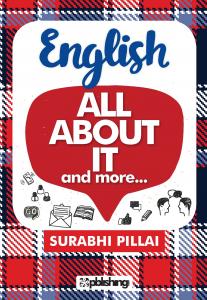
The Interactions
So, as usual Lord Jagnnath with his elder brother
Balabhadra and sister Subhadra has gone on his annual vacation to his garden
palace on the countryside. This festival of ours which is celebrated with great
pomp and show is probably one of the most awaited one by those who participate
in the festivities and, of course, by those who enjoy a leisurely holiday
thanks to Lord Jagannath (Though, why has Lord Jagannath not sanctioned a
holiday, for some of us is something that I want an answer for? We are equally
happy that he’s gone on his annual holidays!)
Well, the Rath yatra went offpeacefully and the colourful
Chariot, decorated magnificently,mesmerized the devotees all over. This brings
to my mind one word that entered the English Language through India and is
especially connected to this event. The splendor with which the Indians
rejoiced all their festivals always left poor British chewing their nails. The Rathyatra was also an occasion that left
them spellbound and in a state of shock; they were astounded to see such a huge
chariot of Lord Jagannath in Puri.
They were even more shocked when during the procession some
people were accidentally crushed, to their amazement they found out that the
chariot of the Lord cannot be stopped and thus a new word was coined. As the
British could not pronounce the Sanskrit word ‘Jagannath’, it becameJuggernaut-- the meaning of which was “A force
which cannot be stopped”.
The interactions between the British and the native Indians
always resulted in comedy of errors and new English words emerged from these
hilarious exchanges. One of these interactions occurred when the British saw
the fishermen on the Madras Coast tie four long tree trunks with a rope and
sailing off into the sea. Impressed with the simplicity of the idea, they asked,
‘what was the craft called?’ but the simple ‘Tambi’ (brother) who used the tree
trunks to fish did not know of the name. He, merely, said that he had ‘Katte’
(which in Tamil means‘tied with a rope’) ‘Maran’ (tree).The British, of course,
misunderstood and thought ‘catamaran’was the name of the raft, and today in
English ‘catamaran’ means a fast slim raft. Although, I doubt, if today they
are made out of tree trunks!
More, Hindi words found
themselves mutilated and accepted in English.One of them was “Vilayati”; Indian
soldiers would call the British soldiers ‘Vilayati’ i.e. a person from England
or a foreigner;eventually, England became synonymous with Vilayat and the
‘Englishmen’ with ‘vilayati’. As usual, the British pronounced the Hindi word
‘Vilayati’ in a funny way and it became ‘blighty’. With time, ‘blighty’ became
a part of English dictionary and came to be recognized as a synonym of
‘foreigner’.